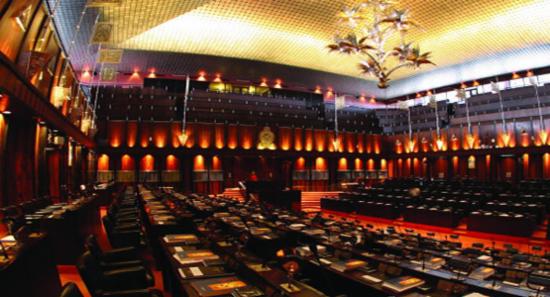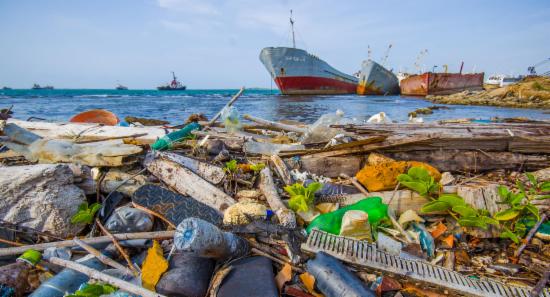.webp)
-812099.jpg)
Nepal Recalls 11 Politically appointed Ambassadors
(Kathmandu Post); The Nepal government on Thursday recalled eleven ambassadors appointed by the former administration led by KP Sharma Oli and asked them to return by November 6.
However, a few others appointed under the political quota have been told to continue.
These eleven ambassadors were appointed on the quota of Nepali Congress and CPN-UML on different dates during Oli’s premiership. The Oli-led government, a coalition of the two largest parties, was ousted by the Gen Z movement on September 9.
A Cabinet meeting on Thursday decided to recall the ambassadors. Ambassadors to China, Germany, Israel, Malaysia, Qatar, Russia, Saudi Arabia, Spain, the United Kingdom, the United States, and Japan have been recalled with instructions to return home by November 6, said Minister for Communication and Information Technology, Jagadish Kharel, while announcing the Cabinet's decision.
The recalled ambassadors are: Krishna Prasad Oli (China), Shail Rupakheti (Germany), Dhan Prasad Pandit (Israel), Netra Prasad Timilsina (Malaysia), Ramesh Chandra Paudel (Qatar), Jang Bahadur Chauhan (Russia), Naresh Bikram Dhakal (Saudi Arabia), Shanil Nepal (Spain), Chandra Kumar Ghimire (United Kingdom), Lok Darshan Regmi (United States), and Durga Bahadur Subedi (Japan).
Oli, Timilsina, Paudel, Ghimire, Chauhan, and Regmi were appointed on the recommendation of the CPN-UML, while Rupakheti, Pandit, Dhakal were appointed under the Congress’ quota.
Except for Subedi, all those recalled on Thursday were appointed on political quota. Subedi is a joint secretary at the Ministry of Foreign Affairs but is said to be close to the immediate past former foreign minister Arzu Rana Deuba. No career diplomat except Subedi has been recalled.
However, the government has decided to allow ambassadors including Dr Shankar Sharma (India), Chitralekha Yadav (Australia), Sumnima Tuladhar (Denmark), Shivamaya Tumbahangphe (South Korea), Kapilman Shrestha (South Africa), and Purnabahadur Nepali (Sri Lanka) to continue.
According to multiple sources at the Prime Minister Office and Ministry of Foreign Affairs, Prime Minister Karki herself had inquired about the performance of ambassador Sharma, who was appointed to India for a second time on behalf of Nepali Congress's quota by the previous government.
“Since he is performing well, there is no need to recall him now,” said an official quoting Karki.
Prime Minister Karki also told foreign ministry officials not to recall female ambassadors even if they were appointed under political quota. Currently Sewa Lamsal and Rita Dhital are serving in Belgium and Pakistan, respectively. Both are career diplomats. Yadav, Tumbahangphe, and Tuladhar were appointed by the former Oli government. Yadav was appointed under Congress quota and Tumbahangphe and Tuladhar were appointed on the UML’s recommendation.
“The prime minister herself did not want to recall the female envoys. She wanted to exhibit gender sensitivity,” said an aide to the prime minister. “So the three female ambassadors were asked to continue.”
Only one Dalit ambassador, Purna Bahadur Nepali who is currently serving in Sri Lanka is also not in the list of those recalled. The prime minister decided to allow Nepali to continue since he is the only ambassador from the Dalit community, said the officials from PMO and MoFA.
Likewise, the government decided to allow Shresha, the ambassador to South Africa, citing his human rights credentials, according to officials.
It is not known when the government will appoint new envoys to the eleven countries.
“The most important thing is procedure,” said one foreign ministry official, “Since the constitution requires that ambassadorial nominees must go through parliamentary hearings, it will not be possible in the absence of parliament.” The official added that it is not good to leave foreign missions vacant for a long time.
Parliamentary elections are scheduled for March 5. Even if elections are held on schedule, it will take at least two more months to convene the new parliament and to form a parliamentary hearing committee. “This means we may not be able to fill the ambassadorial vacancies for another eight, nine months,” officials added.
Unless the government makes some special arrangements through constitutional amendments to appoint new envoys, the missions will remain vacant, officials privy to these matters said.
Thursday’s Cabinet meeting also decided to sign Mutual Legal Assistance (MLA) on criminal matters with India, according to government spokesman and communications minister Jagadish Kharel. MLA on criminal matters is a formal process of cooperation between countries to help gather evidence, investigate, or prosecute criminal offenses.
During the home secretary-level meeting between Nepal and India in July, the text of the MLA on criminal matters was finalised. But, who will sign the agreement and when has yet to be decided.
While making the Cabinet decisions public, Minister Kharel said, “Nepal has decided to approve the agreement on Mutual Legal Assistance on criminal matters.”
The government has already signed a similar kind of agreement with China in October 2019 during the state visit of Chinese President Xi Jinping to Nepal.
Likewise, a decision has been made to establish two joint companies—one in Nepal and one in India—for the construction of the 400 kV Inaruwa–Purnia and Dododhara–Bareilly cross-border transmission lines.
The companies will be formed through joint investment by the Nepal Electricity Authority (NEA) and India's Power Grid Corporation of India Limited.
A Cabinet meeting on Thursday approved NEA’s proposal to invest NPR 1 billion in cash and an additional NPR 2 billion in equity for the establishment of the joint companies.
Minister for Communication and Information Technology, Kharel, informed that the Cabinet has granted approval to the NEA for the formation of the companies and the investment.
Other Articles
Featured News





.png )
-812127_550x300.jpg)
-812121_550x300.jpg)


-812093_550x300.jpg)
-812087_550x300.jpg)




-810262_550x300.jpg)
-809496_550x300.jpg)


















.gif)